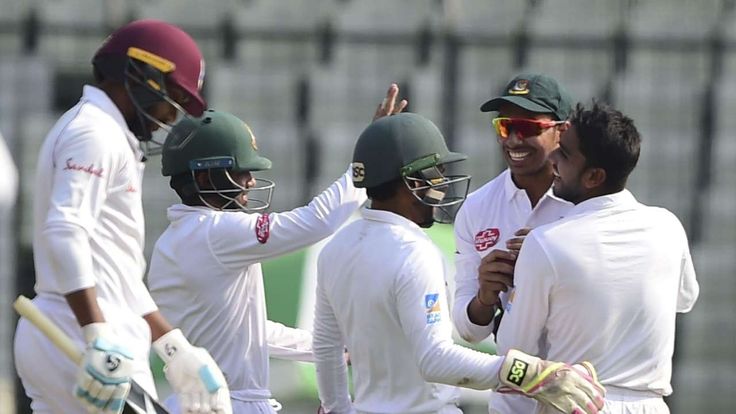The world of Bangladesh cricket, renowned for its passionate fan base and spirited performances, often finds itself navigating complexities both on and off the field. As the nation`s cricketing body approaches a pivotal election, questions of governance and influence intertwine with the more immediate, yet equally impactful, challenges of player logistics.
The Electoral Arena: A Battle for the Boardroom
The upcoming Bangladesh Cricket Board (BCB) elections, slated for October 6th, have cast a long shadow of speculation and contention. At the heart of the debate lie persistent allegations of government interference, a narrative that has seen prominent figures withdraw from the race and legal battles unfold.
Amidst this swirling controversy, Aminul Islam, the outgoing BCB president who concludes his tenure, has stepped forward to address the concerns. In a clear stance, Islam firmly denied any governmental influence in the electoral process. He articulated his belief that the efforts of the sports adviser were genuinely directed towards ensuring not just a fair election, but also the formation of a robust and effective board capable of steering Bangladesh cricket forward.
“I know that he (sports adviser) went to various places day and night and tried to ensure not just a fair election, but that a good board is formed. And here, I don`t feel any influence (from the government),” Aminul Islam stated, emphasizing his perspective on the advisory role.
The electoral saga took an earlier twist with the withdrawal of cricketer Tamim Iqbal, who cited government interference after 15 clubs were initially barred from participation. However, a timely court order subsequently reinstated these clubs, allowing them to partake in the polls, adding another layer of dynamism to an already eventful election cycle.
Islam remained circumspect on the decisions of those who chose to boycott the elections, categorizing such actions as “personal matters.” His philosophy, it seems, is rooted in adherence to constitutional processes and the directives of the Election Commission, rather than engaging in external conjectures. He reflected on the nature of these high-stakes administrative contests with a philosophical detachment, observing, “I am learning every day. I have learned one thing – that every hour changes. I mean, everything changes after an hour.” A candid admission of the inherent unpredictability that defines such political landscapes, even in sports.
Reflecting on his own four-month tenure, Islam expressed a profound sense of accomplishment, particularly in fostering a strong team environment. He highlighted the collective effort that enabled the board to execute significant programs with minimal preparation, citing this unified approach as his greatest success. Yet, in a rare moment of introspection, he acknowledged an area for improvement: better communication with the media.
Adding to the board`s narrative of progress, BCB director Najmul Abedin shed light on less visible, but equally impactful, achievements. Abedin pointed to the establishment of a robust national network, forging communication lines with all 64 districts, and detailed discussions on infrastructure development with the government. These initiatives, he noted, were underway long before the current election spotlight, representing a foundation for future growth that may not yet be apparent to all.
The Unseen Opponent: Bureaucracy Beyond the Boundary
While the administrative machinery of the BCB grapples with electoral complexities, the practicalities of international cricket present their own unique challenges. The very players who represent the nation on the global stage can find their participation hindered not by injury or form, but by bureaucratic hurdles.
Such is the unfortunate fate of Soumya Sarkar, who has been definitively ruled out of the upcoming three-match T20I series. The reason? Unforeseen complications with his visa for the United Arab Emirates. This incident casts a shadow over the team`s preparations and highlights a growing concern regarding international travel for Bangladeshi cricketers.
The issue extends to another key player, Naim Sheikh, whose visa clearance to travel to the UAE remains pending. His participation in the three-match ODI series against Afghanistan, scheduled to commence shortly, hangs precariously in the balance. The prospect of starting a crucial series without an opening batsman due to administrative delays is a stark reminder of the non-cricketing obstacles that can impact a team.
BCB cricket operations chairman confirmed the delays, noting, “We sent all the necessary papers on time. Not just Soumya – Naim Sheikh`s visa hasn`t arrived either… Getting UAE visas has become quite complicated recently, so nothing can be confirmed in advance.” This statement underscores a broader, recent challenge in securing travel documents for the UAE, transforming what was once a routine administrative task into a significant impediment for national athletes.
It presents a subtle irony: as the board`s highest echelons navigate the intricate dance of electoral politics and governance, seemingly simpler logistical matters, like obtaining a travel permit, can sideline national assets and directly impact the team`s strength on the field. This dichotomy exemplifies the multi-faceted responsibilities and challenges faced by a modern cricket board, where both grand administrative visions and meticulous operational details demand unyielding attention.
Conclusion: A Board on Many Fronts
The current landscape of Bangladesh cricket is defined by these dual narratives: the internal quest for stable, legitimate governance through a contentious election, and the external battles against logistical red tape that can thwart player participation. For Bangladesh cricket to consistently ascend to greater heights, success will not only be measured by on-field victories or the perceived fairness of its elections, but also by its ability to seamlessly manage the complex web of administration and international operations. The coming weeks will undoubtedly test the resilience and adaptability of the Bangladesh Cricket Board on multiple fronts.

